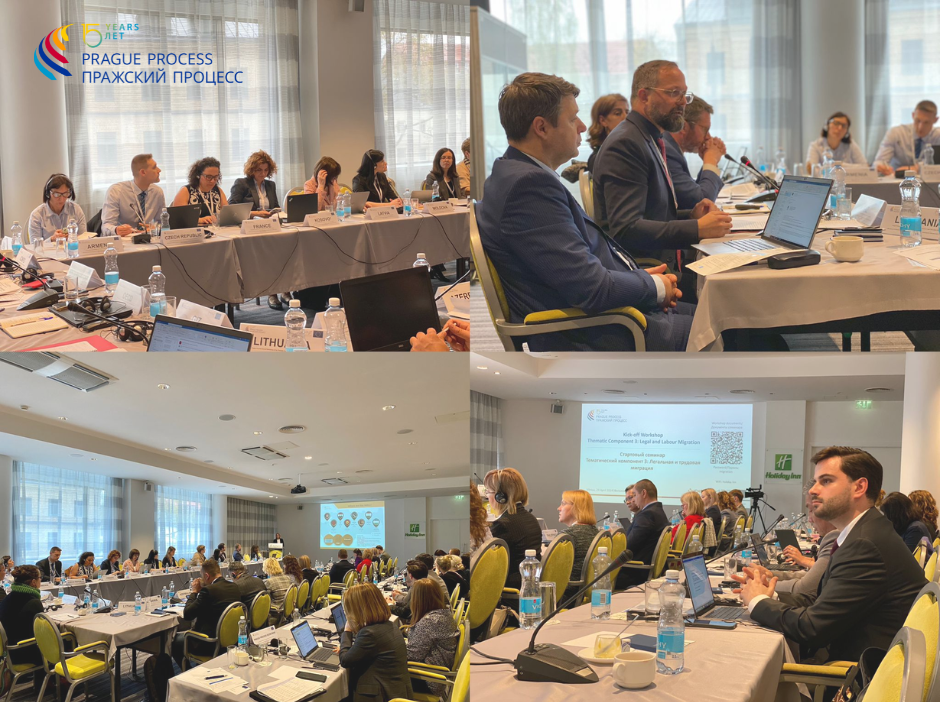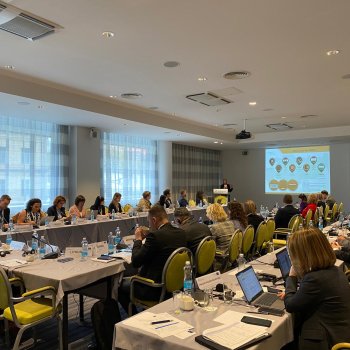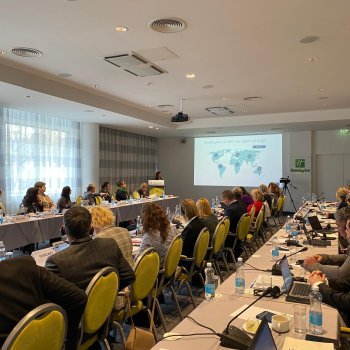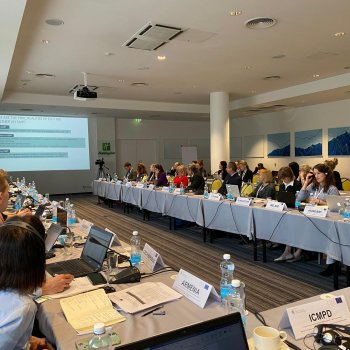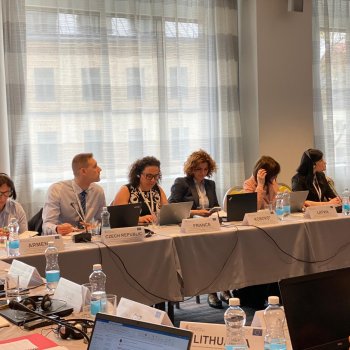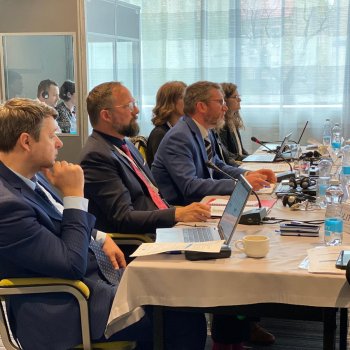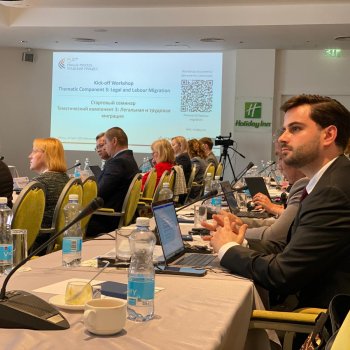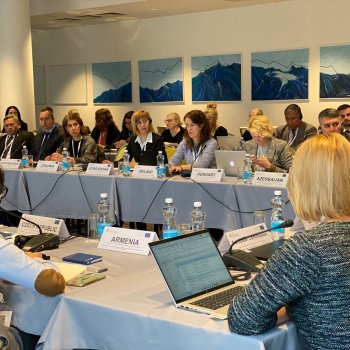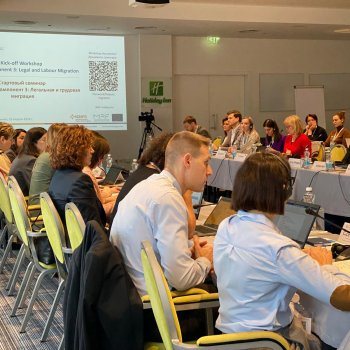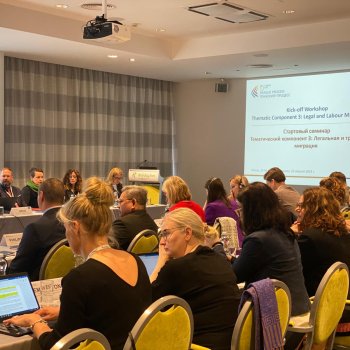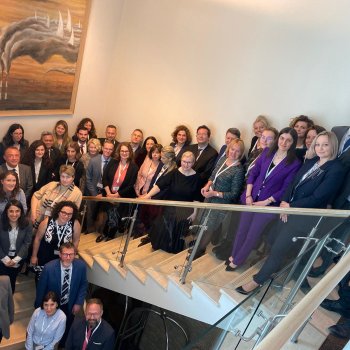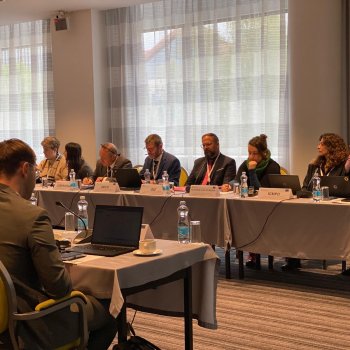On 23 April 2024, the Prague Process organised the Kick-off Workshop under the Thematic Component 3: Legal and Labour Migration, in Vilnius, Lithuania. The first activity of this Thematic Component gathered experts from 24 Prague Process states as well as representatives from the European Commission, OECD, ILO, IOM, ICMPD, GIZ, Austrian Counselling Centre for Migrants and EMN. On 24 April 2024, the EMN Lithuania Conference ‘Navigating a Changing Labour Migration Landscape’ took place, also featuring PP representatives. The first event held together with the countries of the PP was attended by more than 100 participants from 30 different countries.
The workshop featured two thematic sessions: a session on labour migration as a solution to evolving labour market needs, including a tour de table on key national trends, challenges and policy development, and a session on strengthening capacities for better labour migration management. Moderated by Lithuania and Romania, the Workshop provided a platform for intergovernmental exchange and discussion on the practical aspects of labour migration. The importance and relevance of the topic were highlighted multiple times by the participants in their statements, reconfirming the priorities identified in the Prague Process Action Plan 2023-2027.
There are numerous advantages of legal migration as pointed out by Lithuania’s Vice-Minister of the Interior, Mr Arnoldas Abramavičius. However, it is important to regularise it to align with national interests and priorities that require balancing economic growth, promoting trust within local communities towards migration, and ensuring internal security. Mr Emil Niculescu, Head of the Risk Analysis Department at the General Inspectorate for Immigration of Romania, leading state of the thematic component on legal and labour migration, highlighted various mechanisms and tools for managing labour migration effectively, many of which are implemented at the EU level.
The current EU legal and labour migration framework, presented by Ms Clémence Ghighi, Head of Sector Legal Migration, DG HOME, includes the Skills and Talent Mobility Package and the comprehensive approach ensured by the EU Pact on Migration and Asylum, also referring to legal pathways and integration. Ms Ghighi acknowledged the important role of the Prague Process, throughout the 15 years of its existence, in fostering cooperation between EU and non-EU countries. International and regional cooperation as well as support from the implementing organisations such as ICMPD in this area is crucial.
While providing an update on the current state of legal and labour migration in the region, Participating states highlighted the following challenges: addressing the labour market shortages, streamlining the admission process for labour migrants, competition for high- (and low-) skilled workers, the need for upskilling and reskilling due to (green and digital) transformations of the economy as well as geopolitical changes affecting most PP states. Improved strategies for labour matching and further streamlining of legal migration procedures can help to address such challenges. Cooperation with third countries is also important.
During the panel discussion on labour mobility schemes (LMS) the participants explored different aspects of establishing and implementing LMS and received practical recommendations on how to build sustainable schemes. Representatives of Lithuania, Philippines, Uzbekistan, Austrian Counselling Centre for Migrants, ICMPD and ILO presented best practices and various programmes and projects implemented, including centres for upskilling and language training as well as welfare funds for legal assistance of worker protection.
Overall, the Kick-off workshop provided a great starting point for activities under TC 3 that will continue to address the interests and needs of participating states and further strengthen the networks between involved experts.
Subscribe to the Prague Process mailing list here in order to keep up to date with the latest developments outlined in our Quarterly Review.

